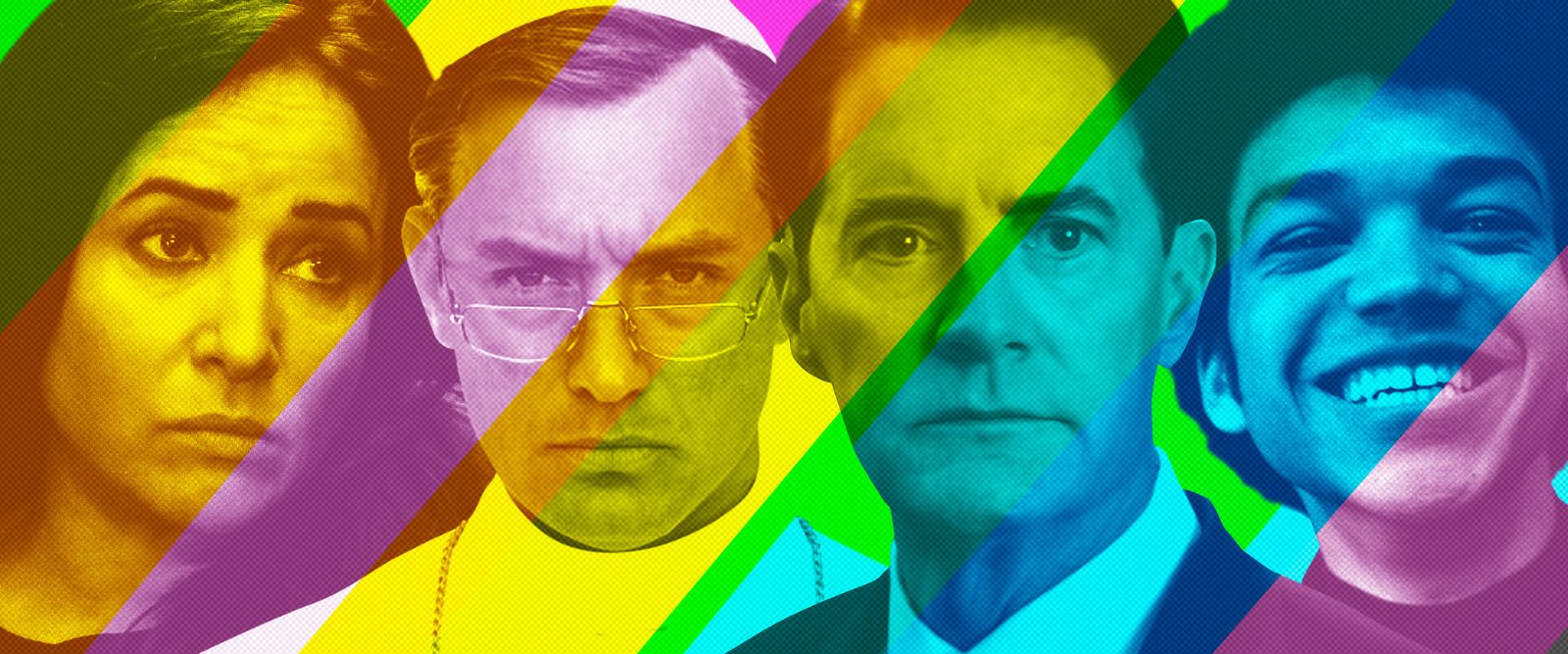In January, I taped a three-by-five card next to my workstation at home and wrote ÔÇ£Best ShowsÔÇØ at the top of it, like I do every January. Whenever I saw a show that I really liked, IÔÇÖd add the title to the card. In 1997, the first year in which I wrote about TV full time, I had ten titles on the card by Thanksgiving. A decade later, IÔÇÖd routinely find myself culling a list of 15 titles when list-making time arrived. By the end of 2016, there were 20 titles on the card. This year, there were 23 strong contenders with another dozen possibles. ThatÔÇÖs a reflection not just of how many shows are in production, but also how diverse they are in terms of style, structure, subject matter, and worldview.
The Carmichael Show (NBC)
Jerrod CarmichaelÔÇÖs old-school, social-issues-driven, three-camera-plus-a-live-audience sitcom is one of many quirky outliers to get canceled this year just when it was really getting warmed up. Too bad: This latest batch of episodes couldÔÇÖve gone toe-to-toe with the best installments of Norman LearÔÇÖs Good Times. Many of the episodes, including the one built around David Alan GrierÔÇÖs characterÔÇÖs confrontation with his motherÔÇÖs mortality, were ripped directly from the actorsÔÇÖ own lives.
Read full review
Crazy Ex-Girlfriend (The CW)
Rachel Bloom and Aline Brosh-McKennaÔÇÖs musical-psychological comedy-drama continues to take risks. The back half of season two and the first half of season three were stunning.
Read full review
Samurai Jack (Adult Swim)
Genndy Tartakovsky caps his series about a stoic samuraiÔÇÖs pursuit of a demon with his career-best work as an animator.
Read full review
The Young Pope (HBO)
Of all the current TV series that owe an obvious debt to David Lynch, this quirky yet often visionary religious drama from Paolo Sorrentino is the most original. The deadpan humor sometimes obscured the fact that, when the show talked about spirituality, it wasnÔÇÖt kidding. The season finale has a cosmic sense of wonder.
Read full review
The Deuce (HBO)
From The Wire collaborators George Pelecanos and David Simon comes a worthy successor, a period piece about the sex trade in 1970s Times Square that doubles as a corrosive satire on capitalism.
Read full review
BoJack Horseman (Netflix)
The fourth season of Raphael Bob-WaksbergÔÇÖs animated comedy-drama was a series of perfectly executed tales of confrontation, denial, selfishness, and healing.
Read full review
The Get Down (Netflix)
Baz Luhrmann and Stephen Adly GuirgisÔÇÖs musical drama about the birth of hip-hop starts in 1977, set just a few years after another great New York drama, Mad Men, ended. Demographically, narratively, and stylistically, itÔÇÖs a worthy companion piece, one of a handful of series that can be said to have devised its own language.
Read full review
Better Things (FX)
Pamela AdlonÔÇÖs series about single motherhood took more stylistic and tonal risks than last year, and they all paid off. Anyone whoÔÇÖs been a parent or a child will appreciate the truths this show contains.
Read full review
The Leftovers (HBO)
Damon Lindelof and Tom PerrottaÔÇÖs post-Rapture drama finished its three-year run with eight episodes of alternately wrenching, surreal, and bleakly funny storytelling about the psychological aftermath of loss and the quest to superimpose narrative on a seemingly chaotic world. I should admit this pick comes with an asterisk: Lindelof told me that certain themes and images, and the totality of episode five, were inspired by my personal writing about the death of my first wife. I loved the season before I knew that, so IÔÇÖm leaving The Leftovers where I think it wouldÔÇÖve gone otherwise; however, if you consider the personal aspect disqualifying, go ahead and bump The Leftovers off the list and move everything up a notch. (In that case, AMCÔÇÖs Better Call Saul would land at No. 10.)
Read full review
Twin Peaks: The Return (Showtime)
A weekly mind-effing event the likes of which hasnÔÇÖt been seen since the first year of Lost. This 18-hour series from Twin Peaks co-creators David Lynch and Mark Frost wasnÔÇÖt a straightforward continuation of the story, but something more like a series of variations or improvisations on familiar characters and situations. It took a while to grasp that it was a largely non-narrative experience, conceived in terms of light and shadow, rhythm and visual rhyme, color and music (most hours ended with a full-length musical performance). Episode eight, which reconceived the postwar history of the United States in mythological terms starting with the first atom bomb test, is a masterpiece; at least five other episodes are nearly as good.
Read full review
*A version of this article appears in the December 11, 2017, issue of New York Magazine.

